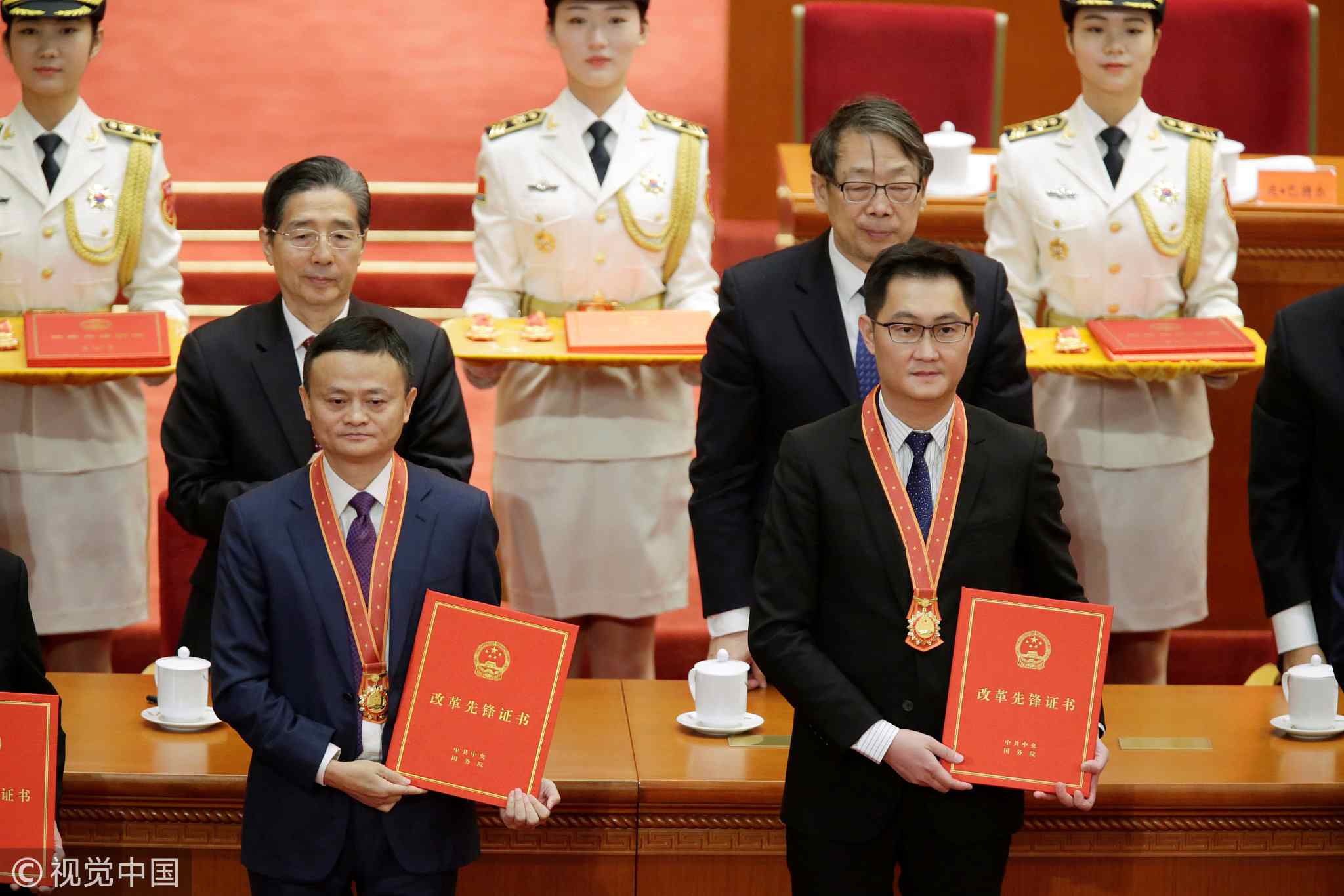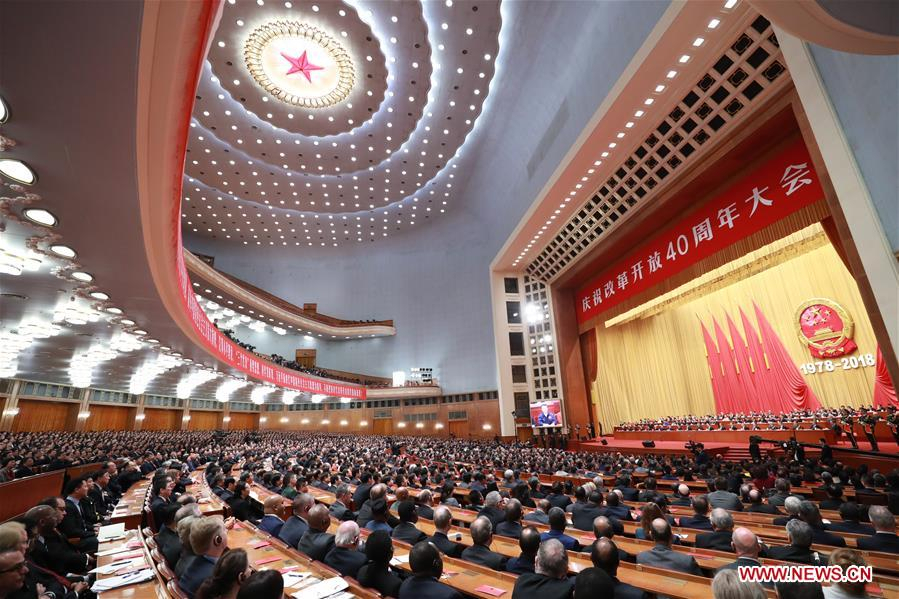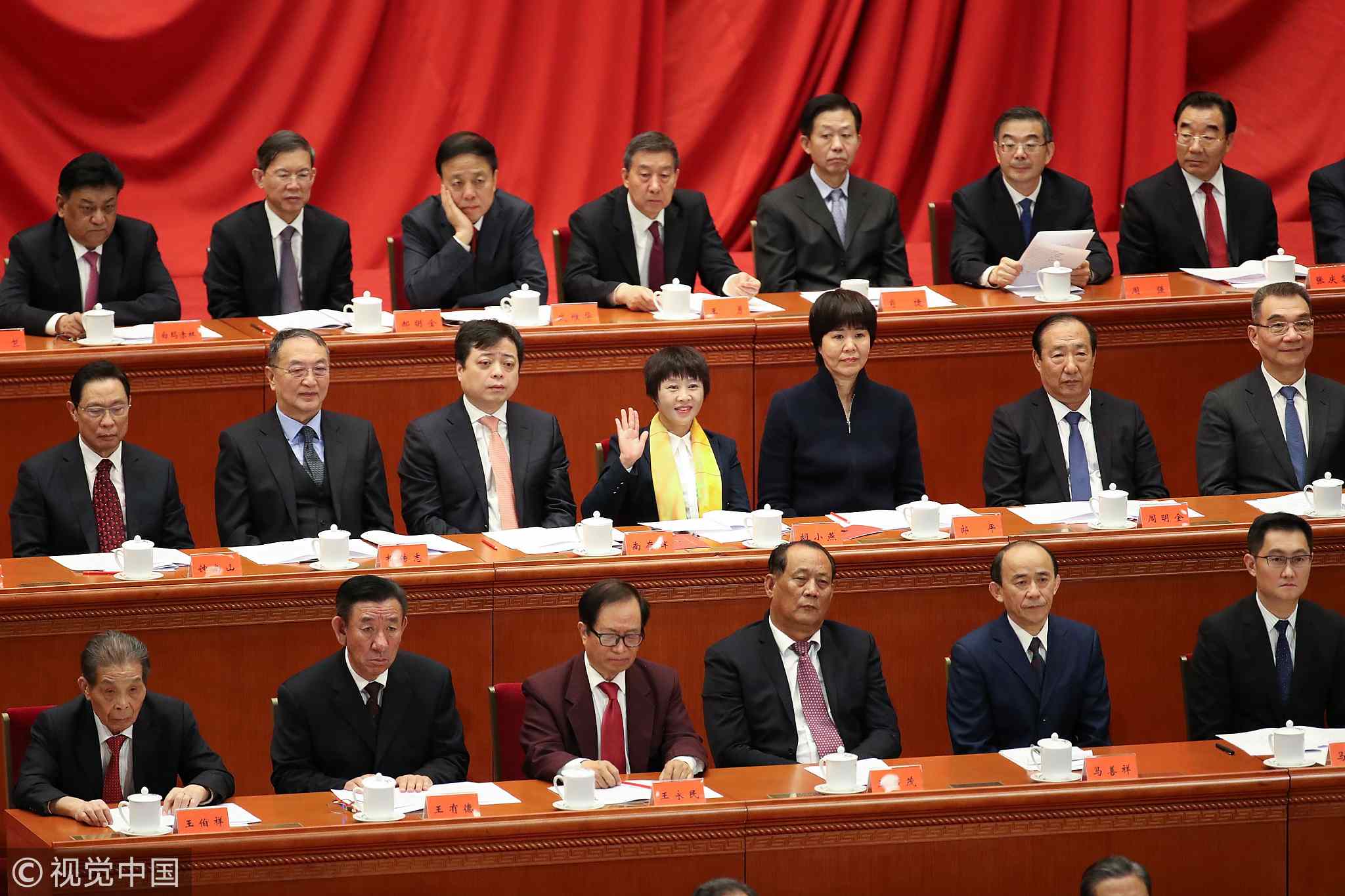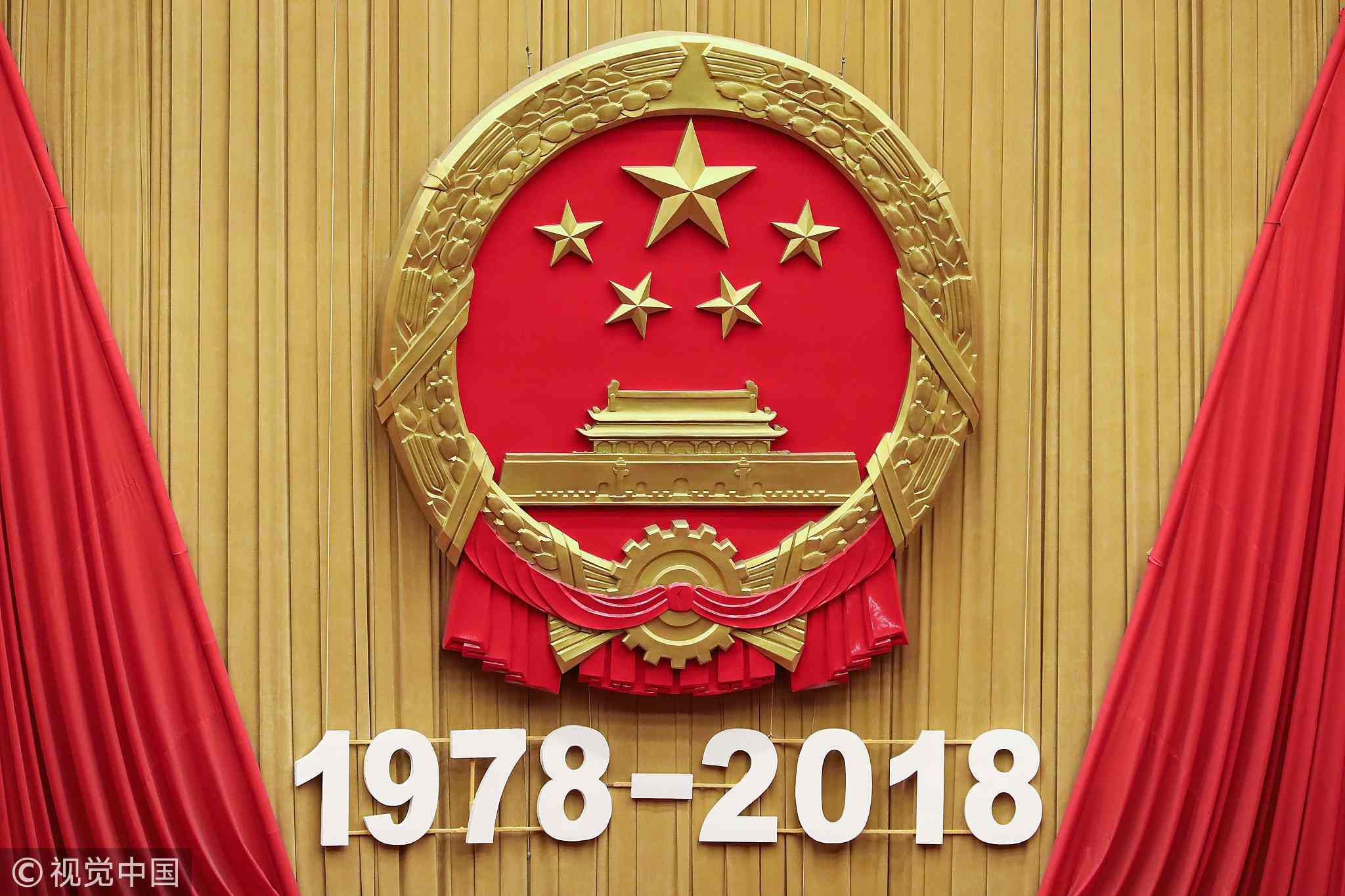Editor's note: Tom Fowdy is a UK-based political analyst. The article reflects the author's views, and not necessarily those of CGTN.
Commemorating the anniversary of 40 years since China's reform and opening began, Chinese President Xi Jinping emphasized in his speech that China would “never seek global hegemony” in its approach to foreign policy. Rejecting such claims, he instead claimed that the country was a promoter of world peace," and a "defender of international order".
These comments are not unprecedented nor are they new in how China perceives their relations with the rest of the world. Contrary to what many western analysts of global affairs claim in their approach to the country today, the foreign policy of the PRC from 1949 has been built upon a consistent opposition to “hegemonism” and has never in any official discourse, aspired to attain such a position for itself.
Although China's economic rise is creating new attitudes, speculations and fears from some voices in the world, particularly from America and its allies, its approach to the wider world continues to be misunderstood in often excessively cynical ways. Beijing is ultimately not interested in a zero-sum, cold war style confrontation with America for global power and leadership.

Alibaba's Executive Chairman Ma Yun (Front-L) and Tencent's Chief Executive Officer Ma Huateng (Front-R ) hold their certificates at an event marking the 40th anniversary of China's reform and opening-up at the Great Hall of the People in Beijing, China, December 18, 2018. /VCG Photo
Alibaba's Executive Chairman Ma Yun (Front-L) and Tencent's Chief Executive Officer Ma Huateng (Front-R ) hold their certificates at an event marking the 40th anniversary of China's reform and opening-up at the Great Hall of the People in Beijing, China, December 18, 2018. /VCG Photo
Firstly, what is anti-hegemonism? It refers to an approach to foreign policy that rejects the idea that one country, or for that matter a group of countries in a given alliance bloc, should be allowed to possess disproportionate power over all the rest the point of dominating them. Supporters of anti-hegemonism advocate an equal international system built upon ideas such as non-alignment, respect for national sovereignty and disinterest in joining alliance systems as seen during the cold war.
Historically, the school of thought was most prominent amongst the non-aligned movement of states in the Middle East, Africa, and South East Asia, most of whom were colonized by western powers and accordingly, achieved independence throughout the 1950s and 1960s.
Given its commonalities with such an era, since the founding of the PRC in 1949, elements of China's foreign policy have been influenced by elements of anti-hegemonism. Having experienced domination and subjugation by European powers in the late days of the Qing Dynasty, the early PRC placed priority on building relations with the post-colonial or “third world” with the objective of avoiding domination by the U.S. and the Union of Soviet Socialist Republics.

China holds a grand gathering to celebrate the 40th anniversary of the country's reform and opening-up at the Great Hall of the People in Beijing, December 18, 2018. /Xinhua Photo
China holds a grand gathering to celebrate the 40th anniversary of the country's reform and opening-up at the Great Hall of the People in Beijing, December 18, 2018. /Xinhua Photo
While engaging in a confrontation with the latter two, China sought to reach out to the rest of the world and avoid rigid alliance systems. Premier Zhou Enlai took the lead with his role in the famous Bandung Conference of 1953, which affirmed these days. Similarly, Mao Zedong's “three world's theory” depicted China as needing to find a third, anti-hegemonic route between the two conflicting superpower blocs.
Of course, the world would change. The more confrontational style of Mao eventually gave way to China's reform and opening-up, whereby the country engaged in a historic rapprochement with the United States.
Ultimately, the view was consolidated that productive and cooperative ties with Washington and its allies were necessary for not only the growth of the PRC but the wellbeing of the international system as a whole. A relationship with Washington ultimately helped prevent Beijing's domination by Moscow.

Attendees of the 40th anniversary of reform and opening-up celebration at the Great Hall Of The People in Beijing, China, December 18, 2018. /VCG Photo
Attendees of the 40th anniversary of reform and opening-up celebration at the Great Hall Of The People in Beijing, China, December 18, 2018. /VCG Photo
While China did not prefer any one country possessing hegemony, it nevertheless reinterpreted these principles in a balanced way, recognizing the increasingly interdependent and open nature of the international system.
Thus, as the Soviet bloc collapsed and American hegemony consolidated in the late 1980s, China sought to carefully ensure that it does not directly challenge American hegemony outright or jump into a state of confrontation, even if there have been strong disagreements between the two and that undisputed U.S. hegemony is, undesirable.

The National Emblem of the People's Republic of China is displayed during the 40th anniversary of reform and opening-up celebration at the Great Hall Of The People in Beijing, China, on December 18, 2018. /VCG Photo
The National Emblem of the People's Republic of China is displayed during the 40th anniversary of reform and opening-up celebration at the Great Hall Of The People in Beijing, China, on December 18, 2018. /VCG Photo
A continuing trait of such anti-hegemonic thought is that it has consistently avoided building formal military alliances with states or forcing countries to choose between Beijing and Washington in a zero-sum way.
Instead, the keystone of China's contemporary diplomacy has been the “strategic partnership” with recipient states, whereby a number of economic and strategic agreements may be signed, but whereby all talk of alliances or alignments are avoided.
Such agreements have allowed China to create political space for itself in the world of unilateral American hegemony in a non-adversarial way. It has given partner countries the ability to initiate widespread cooperation with both powers in a number of fields.
Similarly, as in the past, this has also concerned an emphasis on the developing, or “third world”. China has engaged with countries in Africa, South East Asia, the Middle East, and Latin America under the philosophy of anti-hegemonism and post-colonial solidarity to build new options beyond that of the west alone, which has not always been beneficial on an economic level for the recipient countries.
These initiatives paint a stark contrast with the way many analysts depict China, interpreting recent policies as an ambitious attempt to re-write global hegemony and overthrow to the United States. As evidence, they point to schemes such as Belt and Road Initiative and other forms of cooperation, all which are seen as attempts to dominate and exploit.
Ultimately, such cynical interpretations are unhelpful. As a whole, it is important to understand China's foreign policy history in a historical perspective. Xi Jinping's China may be looking to engage itself on a global scale never before, but it is ultimately not seeking hegemony.
Instead, China's contemporary foreign policy continues to draw from longstanding traditions and ideas which continue to underpin how the PRC views itself in relation to the rest of the world. In which case, the anti-hegemonic and post-colonial traditions continue to wield influence.
(If you want to contribute and have a specific expertise, please contact us at opinions@cgtn.com)






